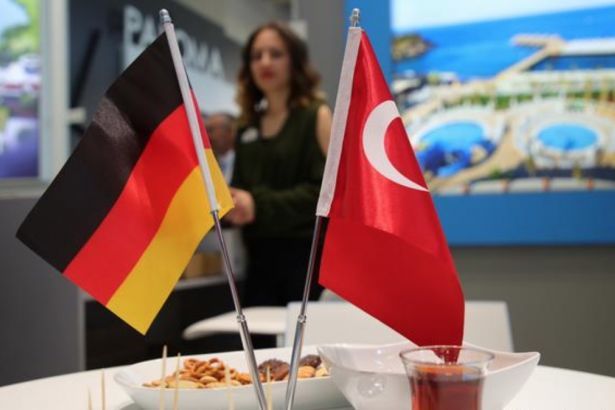'Financial crisis in Turkey may lead a rapprochement with EU'

After the Head of the Social Democratic Party of Germany, Andrea Nahles, said that Germany might provide 'financial assistance' to Turkey during its economic crisis, the competent noted that the financial crisis might be an "opportunity" to achieve a rapprochement between Turkey and European Union, underlining the primary authorities in this issue are EU and IMF.
The statements of Andrea Nahles, the Head of the Social Democratic Party of Germany (SPD), which is the coalition partner in the German government, ignited the wick of a debate after her suggestion that Germany should provide financial assistance to Turkey during its current economic crisis. Yet, the opposition to this statement insists that primary authorities for the financial situation of Turkey are European Union (EU) and International Monetary Fund (IMF), while some parties consider the financial crisis in Turkey as an "opportunity" for a rapprochement with European Union.
Günther Oettinger, the European Commissioner for Budget and Human Resources, has refused to provide a direct financial aid from the EU budget to Turkey, according to a report in Deutsche Welle Turkey. In his statement to Funke Media Group, Germany’s third largest newspaper, Oettinger pointed out that any financial assistance to Turkey from Germany is beside the point under the current circumstances.
Stating that "the right place for the financial aid to Turkey is the IMF," Oettinger said that Ankara would have to resort to the IMF established for "dramatic developments and serious conditions."
Regarding the political developments in Turkey, Günther Oettinger, also a member of the Christian Democratic Union of Germany (CDU), noted: "Unfortunately we had to witness that Turkey receded from its road to the EU membership in previous years rather making more progress towards EU."
Oettinger remarked that EU has treated Turkey "more friendly and fairly" than the United States, reminding that EU has never imposed sanctions on Turkey.
Saying that "First of all, Ankara must follow an accurate policy" in order to overcome the economic crisis in Turkey, Oettinger underlined the importance of such measures to be taken by the Turkish government such as the Central Bank independence, changes in interest rate policies and economic subsidies ─ which will develop trust in the investors.
CHAMBERS OF COMMERCE AND INDUSTRY: "TURKEY MAY RECEIVE FINANCIAL AID FROM THE IMF"
President of the Association of German Chambers of Commerce and Industry (DIHK), Eric Schweitzer, also joined the discussions on financial assistance to Turkey.
Speaking to German Bild newspaper, Schweitzer pointed out that Turkey might receive financial aid from the IMF if needed, and he emphasized that the economic developments in Turkey are "primarily under the responsibility of the Turkish government".
As Schweitzer stated that a possible financial assistance to Turkey is based on "the concrete situation," he underlined that the primary authorities for this aid to be given to Turkey are the EU and IMF.
Schweitzer lastly reminded that the necessary conditions for financial assistance are legal guarantee and the central bank independence.
CEM ÖZDEMİR: "THE CRISIS MAY BE AN OPPORTUNITY FOR A RAPPROCHEMENT WITH EUROPE"
Cem Özdemir, a deputy from parliamentary opposition Alliance 90/The Greens [often simply used as ‘Greens’], noted that some developments such as rising tensions between Turkey and the U.S. along with the depreciation in Turkish lira might be an "opportunity" to achieve a rapprochement between Turkey and Europe.
In his statement to RedaktionsNetzwerk Deutschland (RND - Editor Network Germany), Özdemir said: "It hurts to see the Turkish President Recep Tayyip Erdoğan dragging Turkey into a destruction by taking the country captive like a slave. Yet maybe this crisis creates a chance for the restoration of the current political line followed by the government."
The Head of the Turkish-German Inter-parliamentary Friendship Group and a deputy from the Left Party [Germany], Sevim Dağdelen, has also refused Germany’s possible financial assistance to Turkey.
Speaking to the Bild newspaper, Dağdelen said that "Even the possibility that the money collected by the German citizens’ taxes would be used to consolidate the Erdoğan regime is terrifying."
WHAT HAD NAHLES SAID?
In an interview published in German Funke Media Group newspapers on Sunday, the SPD leader Andrea Nahles had said that "A situation might arise where Germany needs to help Turkey, regardless of political tensions with President Recep Tayyip Erdogan."
The controversial suggestion of Nahles had been refused by the CDU leader and the Chancellor of Germany Angela Merkel.



